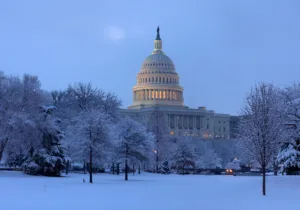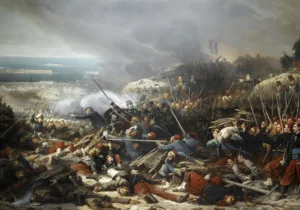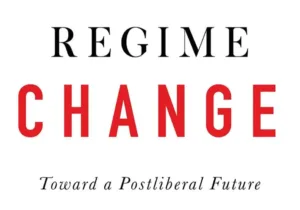On August 6, over a quarter million new cases of the coronavirus were recorded across the world. The same day, the Department of State lifted the Global Level 4 Health Advisory that it issued in March that discouraged international travel during the pandemic. But with the ninth-worst rate of confirmed cases per capita, Americans are not welcomed visitors. Eighty percent of the world’s countries are closed to US residents. Most of those remaining are open only with significant restrictions. Likewise, the US has maintained some of its own constraints on international visitors. Events like these are important to conversations about the role of states in the world.
States emerged as the foremost entity in the international system following the Peace of Westphalia in the mid-seventeenth century. There European leaders affirmed states’ sovereignty and their right to manage domestic affairs. Today states are the building blocks of world order. This system has endured war, disease, and economic crises, albeit imperfectly. Because of its resilience and the infeasibility of a single international government, sovereign states must remain the chief actors of governance. This is especially true during today’s global pandemic, as states have proved uniquely significant—whether by controlling borders, enforcing lockdowns or shelter-in-place orders, or funding research for vaccines. The pandemic has only confirmed the centrality of the state, as Mark Amstutz explained in Providence earlier this year.
First, states make policies and set rules. The laws they provide a basis for order and serve as a standard informing people how to act. During COVID-19, states—whether through central, regional, or local governments—set regulations for businesses, places of worship, schools, and other public spaces. While states have implemented regulations to varying degrees and with varying levels of compliance, they have nonetheless saved lives. COVID-19 has demonstrated the need for states to respond through policy to the unique impacts of global events on their countries.
Second, states enforce restrictions and uphold the law in the face of negative externalities. Effective public policy requires some sort of legitimate enforcement mechanism. Thankfully, all states possess some such capacity, legitimated by their sovereignty. On the other hand, there is no single global government that inherently has the right to make or the ability to enforce laws. The European Union (EU) may be the closest example in modern history of an international government, but as Brexit has demonstrated, the EU is less a sovereign government and more a coalition of independent states. Even international law is formed by the treaties and practice of sovereign states, and the legitimacy of international organizations is contingent on the legitimacy of the states that form them. Additionally, COVID-19 has exacerbated ongoing injustices such as domestic violence, racial discrimination, and opportunistic crime. States are not just making new policies about masks and beach access. They are also working to uphold challenges to previously established laws.
Third, states assist those the disease has affected. Right now in the US, the Centers for Disease Control and Prevention is studying the virus and informing a scientific response to its presence. The Department of Labor is providing directions to employers on how to maintain safe work environments. Congress has provided stimulus checks and expanded coronavirus-related unemployment and leave benefits through the Coronavirus Aid, Relief, and Economic Security Act and the Families First Coronavirus Response Act. The Food and Drug Administration is working with the healthcare industry to develop new drugs, vaccinations, and testing capabilities. The US Census Bureau is sharing demographic data to better inform leaders making decisions for their communities. Even the Internal Revenue Service delayed the federal tax filing deadline. Whatever one’s preferred method of assistance—whether stimulus checks or testing kits or grants to fund vaccination research—states are essential to the COVID-19 response.
Fourth, states are vital for international cooperation. As the coronavirus has shut down borders and businesses, states are going to need to work together vigorously to rebuild global trade and safely resume global travel. Global health also depends on international cooperation, particularly the communication of information about disease epidemiology and possible medical interventions. This is especially true in countries where research capabilities and healthcare infrastructure are not adequate for well-informed, comprehensive approaches to public health. But even for states with strong public health systems, international cooperation through organizations like the World Health Organization are important for preventing a resurgence of the virus from abroad, not to mention a moral responsibility and a great use of soft power.
Finally, states are vital for spreading accurate and helpful information. True, international, national, and local institutions can all contribute to this effort. Yet states’ roles are most salient and most impactful. Those that have consistently provided clear updates on the pandemic and fact-based reasoning for new policies have fared far better than those that have been unclear, inconsistent, or detached from reality in their analysis.
The role of the state is important for individual citizens to keep in mind. Citizens ought to exercise proper respect for government and the purpose that it has under God—for our good. They ought to recognize the legitimacy of the state and their obligation to submit to it so long as this does not require them to sin against God or against one another. This holds true even when a person does not agree with a particular policy. Do not mistake obeying the government for partisanship; rather, recognize the goal of the state in upholding the common good and not just your individual benefit. Prioritize doing what is right, respectful, and loving over your claims to personal liberty.
No one should have illusions about states’ performances in the current crisis. While we have seen shining examples of leadership and good governance in places like Germany, New Zealand, and Taiwan, many other states, including the US, have failed to address arising problems successfully. But improving those states (and their relationships with one another) is wiser than either retreating to isolation or advocating for some sort of centralized global government. The state system is resilient. Citizens should work to build it up, not tear it down.






